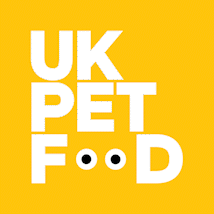PFMA Provides Advice To Owners Following The Reported Cases Of Feline TB Recently In The Media
PFMA provides advice to owners following the reported cases of Feline TB recently in the media
PFMA is aware of recent research by the University of Edinburgh looking at a number of cases of cats sadly infected with Mycobacterium bovis (M. bovis), the bacterium usually responsible for causing Tuberculosis (TB) in cattle.
The researchers found a circumstantial link with the diet fed to the cats. The diet in question was a single product (a wild venison recipe) produced by a single manufacturer. Investigations are still on going to confirm the exact cause of infection and the pet food manufacturer has provided full information on their website: www.naturalinstinct.com/venison. The manufacturer stopped manufacturing and selling the wild venison product in December 2018.
Our heart goes out to the owners of the cats and we also appreciate that this may cause other owners to worry about what they feed their pets. The product in question was a commercial raw diet, which has led to some discussion on feeding raw diets to pets. We would like to provide some additional reassurance and guidance to owners on this topic.
Our safety advice to owners is:
Choose a product from a reputable commercial raw food manufacturer
Ensure your pet food is produced by a registered raw food manufacturer who is professionally making raw pet food meals with the appropriate microbiological controls. Commercially prepared raw foods are subject to stringent controls set in legislation. Additionally, PFMA commercial raw members manufacture their diets in line with best practice guidelines.
Good hygiene practices when handling raw meat at home are essential
While it carries no greater risk than handling fresh raw meat intended for humans, pet owners must be dedicated to good hygiene practices in the home and maintain high standards of hygiene to prevent contamination. Careful storage, handling and good hygiene practices when preparing and feeding a raw meat diet are vital. We encourage owners to take the time to read our best practice tips: Responsible Raw Feeding for Cats and Dogs | UK Pet Food
It is also important to follow best practice hygiene practices when handling pets such as thoroughly washing hands before and after coming in to contact with pets, changing litter trays, do not allow pets to lick faces etc.
Think twice about homemade diets
Cats are obligate carnivores with very specific nutritional needs, making a homemade diet providing all the right nutrients in the right proportions is difficult and should not be undertaken without advice from a veterinary nutritionist.
PFMA has 11 commercial raw companies within membership and this group has been instrumental in developing and promoting best practice in the manufacture of commercial raw diets. Ensuring safety whilst providing excellent nutrition is at the core of their work. In collaboration with Defra, the Animal Plant & Health Agency, Public Health England and the Food Standards Agency, our members have developed new Guidelines for the Manufacture of Raw Pet Food in the UK. For a list of our commercial raw producers in membership, please visit: Responsible Raw Feeding for Cats and Dogs | UK Pet Food
For more information about TB in cats, please visit: https://icatcare.org/advice/cat-health/mycobacterial-diseases-cats-tuberculosis






